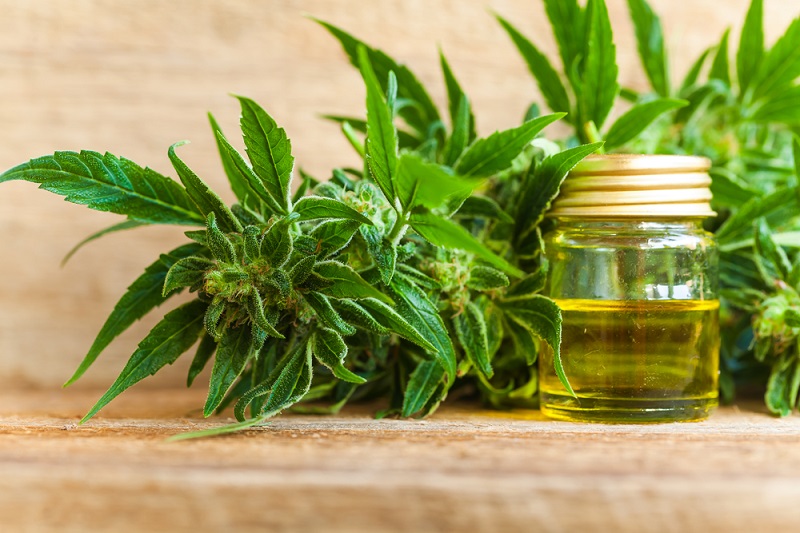CBD oil is a very popular alternative treatment for chronic inflammation, but is this popularity based on scientific results or is it just a temporary trend? Nowadays, inflammation is a real problem, and not just for those suffering from arthritis. Pollution, stress, and environmental factors can also cause inflammation. Chronic inflammation is somewhat difficult to diagnose or sense, but it is definitely not to be taken lightly. In the last few years, scientific research has confirmed that chronic inflammation can cause a number of diseases and conditions, including:
- Asthma
- Depression
- Cancer
- Diabetes
- Heart disease
- Osteoporosis
- Alzheimer’s disease
- Rheumatoid arthritis
- Periodontitis
This article explains what inflammation does to the human body and why more and more people are choosing CBD as an alternative treatment.
What is Inflammation?
Inflammation is the body’s way of protecting itself from injuries, infections, and illnesses. When the organism is in danger, the immune system is attempting to protect you. But in some cases, while fighting the threat, it can easily damage your own tissues. On visible areas of the body, inflammation can manifest as swelling, redness, stiffness, impaired function, pain, and/or heat. When the immune system is functioning properly, it knows when the body is in danger. It knows where the threat is located and when to activate inflammation in order to protect you. It also knows when the threat is over. However, the exposure to triggers such as polluted air or unhealthy food can send false signals to the immune system causing it to continue fighting. In this way, chronic inflammation is developed. When left untreated, inflammation becomes a disease itself. If the inflammation continues for a longer period of time or it appears in areas where it isn’t needed, it can be a serious problem.
What is CBD?
CBD (Cannabidiol) is one of over 100 chemical compounds called cannabinoids found in the Cannabis Sativa plant. Many people associate CBD with smoking marijuana and getting high. However, CBD is non-psychoactive and has no mind-alternating properties. The compound responsible for making people high is Tetrahydrocannabinol (THC). A number of studies have shown that CBD has antioxidant, anti-inflammatory, anxiolytic, antiemetic, and anticonvulsant properties. These properties make CBD effective for preventing and treating a wide range of diseases and conditions, including:
- Depression
- Anxiety
- Epilepsy and seizures
- Schizophrenia
- Oxidative injury
- Inflammation
- Cancer
- Nausea and vomiting
- Heart disease
Using CBD to Help Treat Inflammation
Scientists are still trying to fully understand the effect of CBD in treating inflammation. So far, there are indications that CBD fights inflammation in several different ways:
- Scientists believe that inflammation is closely related to oxidative stress in the genesis of some diseases. They have found that CBD helps treat inflammation by modulating the immune system function and reducing oxidative stress in the body.
- Cannabidiol stimulates the PPARy receptor which is known for reducing the production of inflammatory cells and boosting the production of antioxidants in the body. The healing potential of CBD for ulcerative colitis, multiple sclerosis, and Alzheimer’s has been linked to the PPARγ receptor.
- Lab experiments conducted on animal models have shown that the effectiveness of cannabidiol in protecting against inflammatory damage caused by arthritis results from its ability to decrease the production of TNFα (inflammatory tumor necrosis factor).
- Cannabidiol and other cannabinoids are known for their ability to reduce all kinds of pain, including menstrual cramps. This is due to CBD’s ability to inhibit the enzyme COX-2, which is responsible for producing inflammatory prostaglandins.
How to Use CBD for Inflammation
Having all this in mind, it’s no wonder that more and more people are turning to CBD as an alternative, 100% natural treatment for inflammation. CBD can be a great supplement to your anti-inflammatory lifestyle plan. However, to increase its efficiency, consider combining it with other ways to combat inflammation. Here are a few examples:
- Increase the intake of anti-inflammatory foods such as fruits and vegetables, as well as foods rich in omega-3 fatty acids. The best sources of omega-3 fatty acids are tuna, salmon, tofu, soybeans, and flax seed. Other anti-inflammatory foods are celery, garlic, grapes, blueberries, olive oil, turmeric, rosemary, ginger, and tea. A great example of an anti-inflammatory diet is the Mediterranean diet which focuses on veggies, fruits, whole grains, and fish, at the same time limiting the intake of bad fats such as egg yolks, butter, and red meat, as well as carbs and processed sugars.
- Reduce the intake of inflammatory foods like red meat and trans fats (corn oil, margarine, processed foods, and deep-fried foods).
- Regular low-impact workouts (such as tai chi, yoga, water sports, and cycling) is a great way to reduce inflammation. About half an hour of aerobic exercise and 15-20 minutes of resistance training at least 4-5 times a week should suffice.
- Very often, inflammation is a result of chronic stress. Use relaxation methods like meditation and yoga to manage stress throughout the day.
Final Thoughts
Although more scientific studies are necessary to fully understand the effects of cannabidiol on chronic inflammation, initial results are quite promising. CBD may be an effective supplement to help treat inflammation; however, it is very important to consider vital factors such as the use of CBD strain with lower levels of THC and suitable dosage. If you think you have chronic inflammation, you should speak with your doctor about treatment options, as well as the possibility to include CBD in your anti-inflammatory lifestyle plan. This is especially important if you’re already taking any prescription drugs, in order to avoid possible negative interactions.

